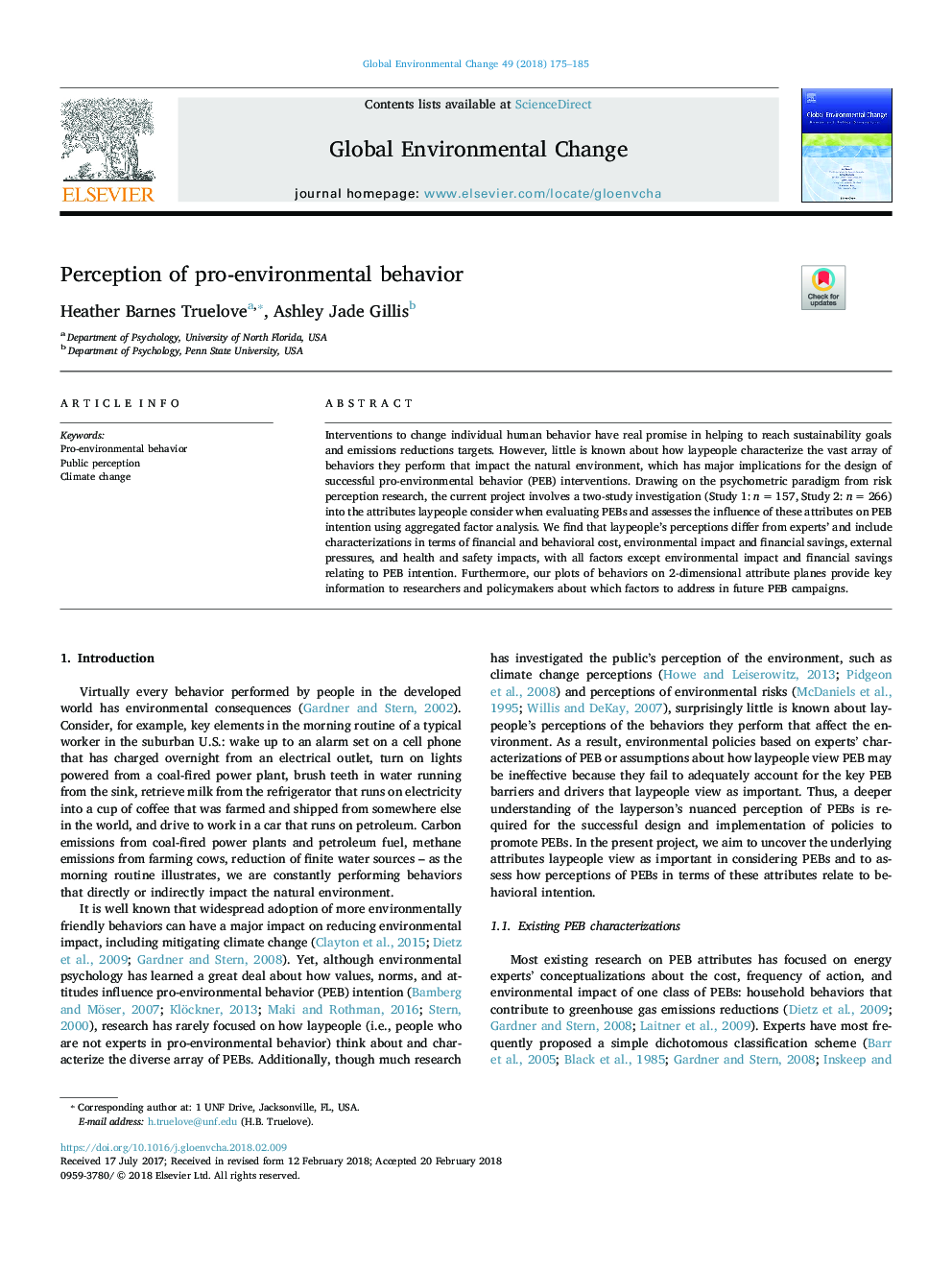| Article ID | Journal | Published Year | Pages | File Type |
|---|---|---|---|---|
| 7469021 | Global Environmental Change | 2018 | 11 Pages |
Abstract
Interventions to change individual human behavior have real promise in helping to reach sustainability goals and emissions reductions targets. However, little is known about how laypeople characterize the vast array of behaviors they perform that impact the natural environment, which has major implications for the design of successful pro-environmental behavior (PEB) interventions. Drawing on the psychometric paradigm from risk perception research, the current project involves a two-study investigation (Study 1: nâ¯=â¯157, Study 2: nâ¯=â¯266) into the attributes laypeople consider when evaluating PEBs and assesses the influence of these attributes on PEB intention using aggregated factor analysis. We find that laypeople's perceptions differ from experts' and include characterizations in terms of financial and behavioral cost, environmental impact and financial savings, external pressures, and health and safety impacts, with all factors except environmental impact and financial savings relating to PEB intention. Furthermore, our plots of behaviors on 2-dimensional attribute planes provide key information to researchers and policymakers about which factors to address in future PEB campaigns.
Related Topics
Life Sciences
Environmental Science
Environmental Science (General)
Authors
Heather Barnes Truelove, Ashley Jade Gillis,
